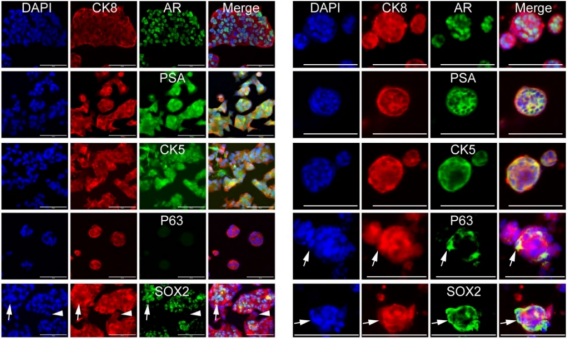On September 11, 2024, Dong Wang and Jing Li’s team from the Institute for Translational Medicine published a research paper titled “Human intermediate prostate cancer stem cells contribute to the initiation and development of prostate adenocarcinoma” in the top medical journal “Stem Cell Research & Therapy” (https://doi.org/10.1186/s13287-024-03917-8). Jie Mu, a 2020 Ph.D. student, is the first author. The corresponding authors are Dong Wang and Jing Li from the Institute for Translational Medicine, Aihua Liu from the College of Life Sciences, and Hai Zhu from Qingdao Municipal Hospital, Qingdao University. This work was supported by the National Nature Science Foundation of China, the Natural Science Foundation of Shandong Province, the Natural Science Foundation of Qingdao, and the “Medicine+” Program of Medical College of Qingdao University.

The researchers spent six years developing this novel cancer research platform. The team completed the proof-of-concept study in 2022 and published a research paper titled “Expansion of mouse castration-resistant intermediate prostate stem cells in vitro” in “Stem Cell Research & Therapy” (https://doi.org/10.1186/s13287-022-02978-x), co-authored by 2019 Master student Yalan Xu and 2020 Ph.D. student Jie Mu as first authors. Subsequently, the researchers discovered a type of castration-resistant intermediate prostate cancer stem cells (CriPCSCs) in clinical cancer samples, established two-dimensional culture and three-dimensional organoid models for CriPCSCs, and developed a patient primary cell-derived xenograft model (PrDX). The PrDX model significantly increased the success rate of the PDX model and will greatly advance cancer drug development and personalized precision medicine. These research methods can also be applied to studies of other solid tumors and have a broad impact on cancer research.